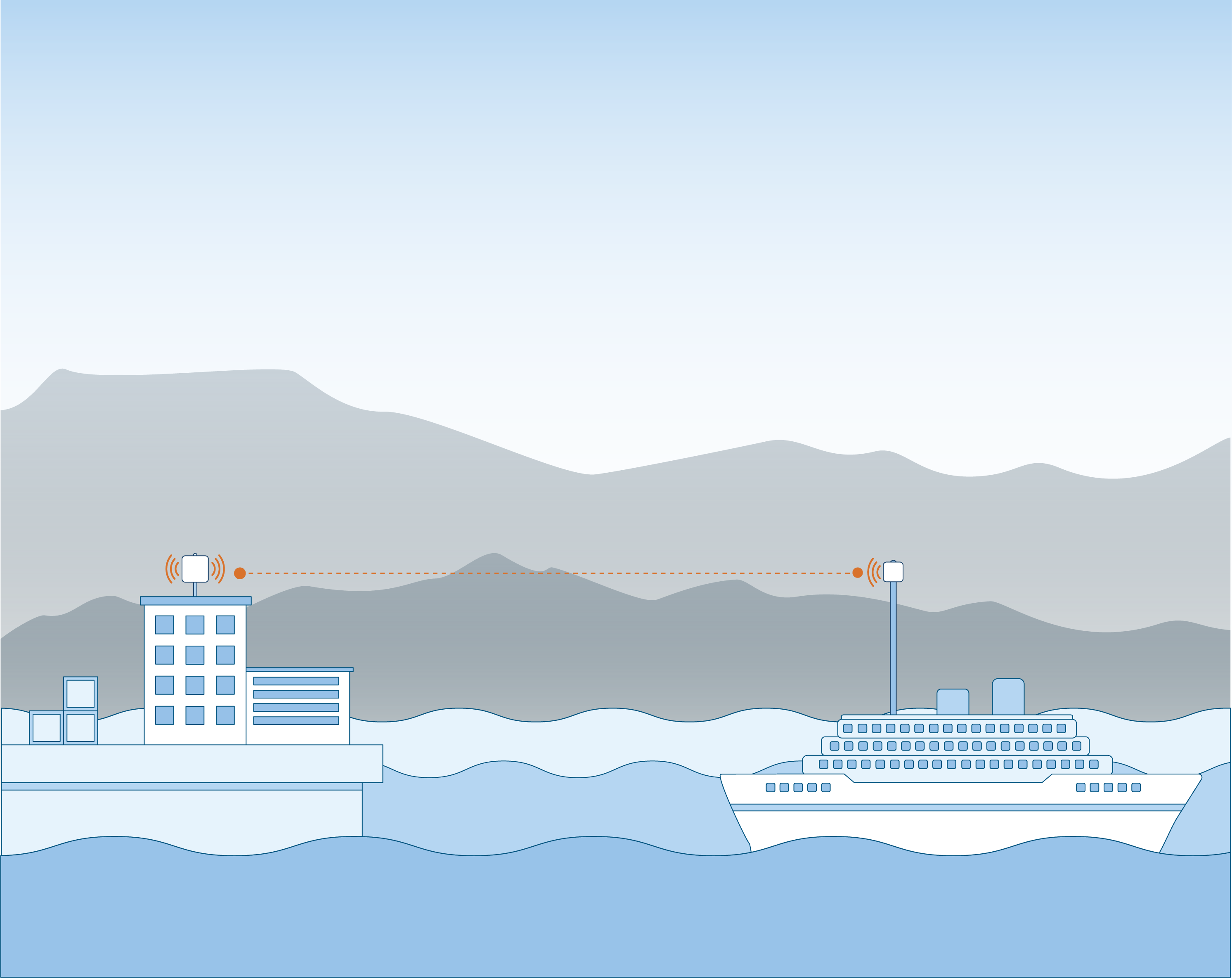Description
The main scenario for communication with water transport is following (see Figure 1):
- One or several BS sectors are installed in the seaport area. If the ship will cruise along a given water area, then BS sectors are installed along the coastal strip.
- BS sectors are joined into a single MINT via InfiMUX installed on the aggregation node.
- One or more CPE sets are installed on the ship. The antennas used depend on the project features.
- The aggregation node and the control center are connected via the main and backup backbone links.
Figure 1 - Water transport
The specific of such scenarios is the signal propagation path, since a route part is located above the water surface. The radio signal is reflected from the water surface, as a result an intersymbol interference (ISI) appears on the receiving side. To reduce ISI affect, the guard interval between messages can be increased. The guard interval configuration can be configured on the InfiLINK 2x2 and InfiMAN 2x2 family devices with the TDMA software version by increasing the "Distance" parameter and in Vector 5 devices by increasing the "GI" parameter.
Rolling is also should be taken into account in such projects. In order to keep CPE position relative to the BS, a roll compensation device with a gyroscopic principle can be used.
Configuration
Following configuration is recommended for projects with water transport:
- join all BS sectors into a single MINT area via InfiMUX installed on the aggregation node;
- nomadic mode;
- MultiBS function enabled;
- Global function enabled.
Completed projects
The following projects were implemented by InfiNet in accordance with scenario above:
